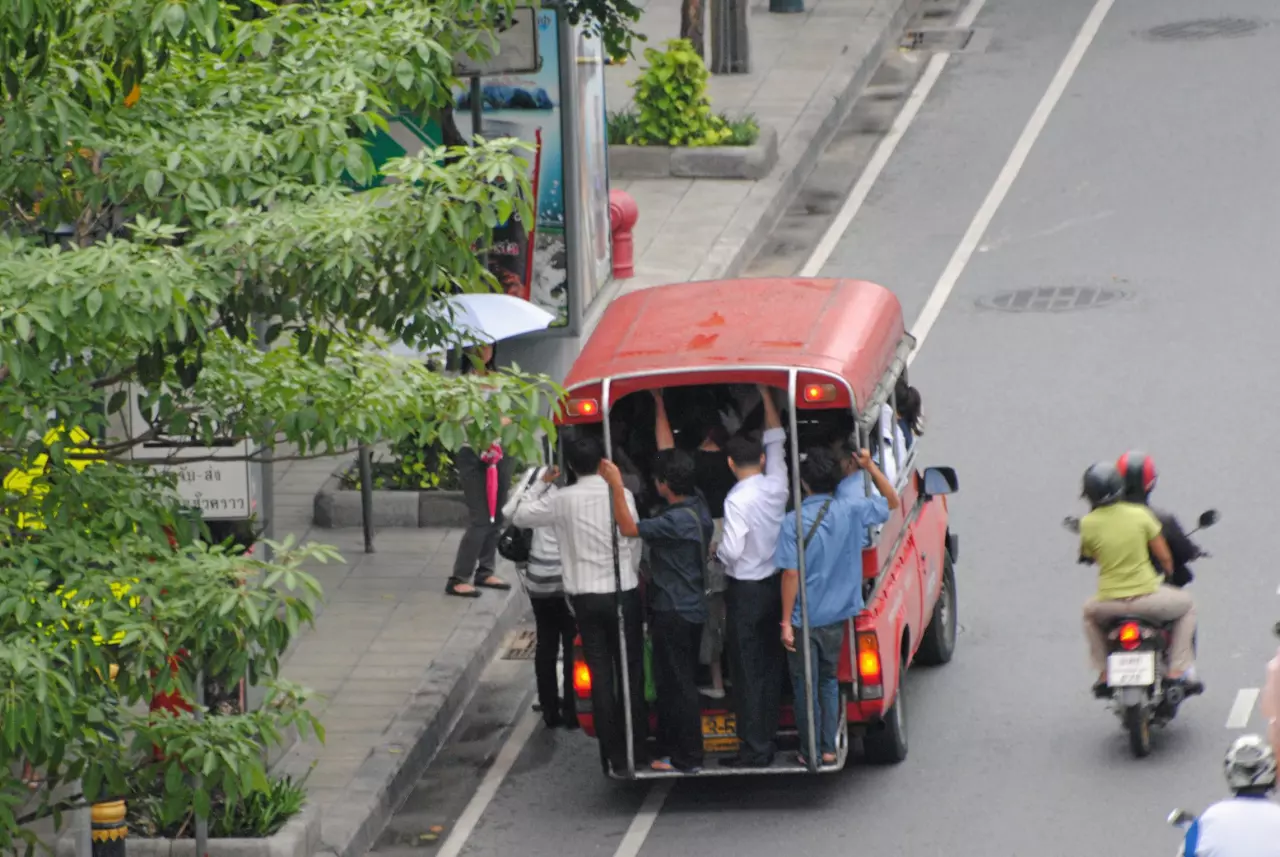Thailand bans standing up on songthaews, drivers aren’t happy

Thailand introduced a law on Friday which requires passengers to sit down when travelling on a songthaew, a popular form of public transport. However, songthaew drivers say the law is detrimental to their livelihoods and are worried it could lead to extortion.
A songthaew is a passenger vehicle converted from a pickup truck with two rows of seats. Songthaews have been used as a cheap form of transport for decades in Thailand, and are often packed out with passengers standing or hanging off the back.
The new law, published in the Royal Gazette, aims to make the songthaew experience safer for everyone involved. But drivers say it’s impractical and uneconomical.
Songthaew drivers spend 800-1000 baht on fuel per day so they need as many passengers as possible since most journeys cost 8 baht, or a little more depending on the province.
A songthaew driver from Bangkok voiced his concerns…
“Normally, there is a rush hour in the morning and evening. My route runs from Siriraj Pier to Phutthamonthon. The new law will make me earn far less money because previously, the Department of Transport ruled that songthaews can seat up to 11 people and an extra seven people can fit standing.
“Sometimes, in rush hour, there are traffic jams and far more passengers, meaning many more end up standing.”
Songthaew drivers also said that the Department of Transport cannot expect songthaew drivers to be able to enforce the new rule since they are driving and cannot control the number of passengers hopping in and out of the vehicle.
If drivers charge 8 baht per trip – and are allowed only 11 passengers, they will make 88 baht per journey only – if the vehicle is full that is.
But most drivers predominantly earn their income in the two busy periods of the day, with far more than 11 passengers on each journey, so the new law will reduce their income significantly.
Drivers expressed concerns that once the songthaew is full, they would either displease passengers by rejecting them or have to risk breaking the law and being arrested if they accepted them.
Some were worried that police would use the new law to extort songthaew drivers.
If the government is worried about road safety, they might be better off focussing on motorbike safety since 85% of people who die on the roads are driving motorbikes.
Latest Thailand News
Follow The Thaiger on Google News:


























